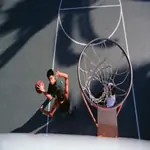Officiating youth basketball is a great responsibility. You have the opportunity to shape the lives of young people by ensuring that ethics, sportsmanship and fair play remain important factors in young players lives.
Officials are the ultimate on-court role models. Coaches and players each have their own areas of responsibility, but officials are and should be held to a higher standard. You are the standard-bearer of honesty and integrity.
An official must do what's right morally and ethically. Your decision cannot be considered the right one just because things happened to work out. The end never justifies the means. If you think about justifying what you're about to do, you probably should not do it.
You cannot afford to have your integrity questioned on situations over which you have direct control. You cannot afford to give even the slightest hint of the appearance of impropriety. That's the higher standard to which all officials are accountable.
Look the part, act the part!
Sometimes you can judge a book by its cover. When an official shows up out of uniform, out of shape and with a bad attitude, that official obviously takes no pride in the job at hand. How you look and how you act will go a long way toward showing your commitment and professionalism.
Look the Part
Stay in Shape -- You don't have to have the physique of an athlete to officiate, but it helps. Officiating is an athletic endeavor. Strive to stay trim and fit.
Dress for Success -- Make sure you wear the proper uniform and wear it properly. That means no shirttails or wrong-colored pants. And don't forget to replace your uniform periodically when it starts to get threadbare.
Watch Your Body Language -- How you carry yourself speaks volumes about you. Stand up straight, make eye contact and don't cross your arms. Smile often, but don't smirk or frown.
Use Crisp, Clear Signals -- A weak, half-hearted signal says you're unsure of yourself. If you're going to make a call, make sure you're swift and confident with your signals.
Act the Part
Show it to Earn it -- You'll gain respect by first showing respect. That includes toward the coaches, players, parents and your fellow officials.
Keep Your Ego in Check -- Don't draw unnecessary attention to yourself with flashy signals or overly officious explanations. Never put your ego above the interest of maintaining a fair and smooth-flowing game.
Respect the Game -- Every game is important to the participants and every officiating assignment should be treated as such. Just because two teams have losing records does not mean you shouldn't put the same amount of energy and professionalism into your game.
Make No Compromises -- Understand that a make-up call is considered cheating and is never allowed. If you make a mistake on one end of the floor, you must never repeat that mistake on the other in a misguided attempt to "even things up."
THE REFEREE'S CHECKLIST
When in doubt, don't.
If you are not sure about a call, don't make it. Judgements must be made with no doubts in mind.
Never compromise your principles.
Don't allow the emotion of a moment to cloud your judgment. Do what you must do, not what you may want to do.
Don't rationalize.
When you rationalize, you lower your standards, and nobody gains from it.
Never work a game if a family member is a player or coach.
If your son or daughter is playing, take a seat in the stands and let others handle those games. Where does "family" end? Your niece? Your cousin? If you have any doubts, don't work the game.
Great officiating is selfless.
Your duty is to the game first, your partner(s) second and yourself third.







Discuss This Article